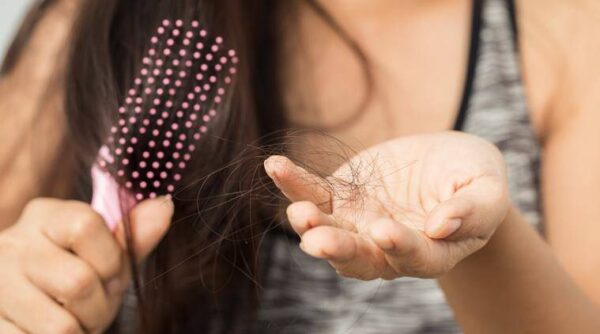Hair loss is a serious condition that affects many people around the world. It can be caused by a variety of factors including age, genetics, stress, and nutrient deficiencies. It can also be a tough battle to face, as it often hurts self esteem. However, there are multiple solutions out there that can help restore hair. Keep reading to learn four tips and tricks that can lessen the effects of hair loss.
1. Take Medication
Using medication is a powerful solution, as it targets the cause for the condition. There are a few tried-and-true medicines out there that have been proven to help restore hair loss. Two of the most commonly prescribed are minoxidil and finasteride.
Minoxidil is the active ingredient in Rogaine, which is commonly used to fight male pattern baldness (MPB). This medicine is labeled as a stimulant because it increases blood flow, which spurs the follicles to begin producing hair again. Minoxidil is available as a topical in the forms of serums, gels, and sometimes shampoo.
Finasteride is also regularly used to treat MBP, but it works a little differently than minoxidil. This medication blocks the overproduction of a male sex hormone called dihydrotestosterone (DHT). When the body creates too much DHT, many times the hormone will adhere itself to hair follicles. The result is shrunken follicles that eventually stop growing hair, which will become weak and fall out. Finasteride is available as a topical as well, but it can also be taken orally as a pill.
The cause of your hair loss will determine which medication will be effective for you. Some trial and error might be necessary. Although, there are topicals that have both minoxidil and finasteride as active ingredients in them. So, you can reap the power of both together in one medication.
2. Use Growth Serums
If you want to try a holistic approach, there are some options for you. Hair growth serums are topical solutions you can apply to your scalp on a regular basis. These are loaded with vitamins and minerals that will hydrate your follicles and boost healthy growth.
Many hair serums target different hair needs, like thickening, regrowth, and hydration. Several use natural ingredients. These might include caffeine, keratin, turmeric, biotin, or rice water extract. The nutrients it contains will determine what kind of hair condition the serum aims to improve. For example, caffeine is a stimulant to encourage regrowth, while peptides improve thinning hair.
Some serums are oil-based, meaning they might leave a residue on your scalp. When using these, it’s recommended to apply them at night before bed or an hour before you take a shower. If you try a serum that’s not oil-based, there likely won’t be a residue. You can use these throughout the day or incorporate them into your hair care routine.
3. Increase Your Intake of Certain Vitamins and Minerals
Specific vitamins and minerals are connected to hair health, as they provide the necessary nutrients to keep hair strong. Most of these come in supplement form, but they’re also in certain foods you can eat more often. It’s also important to note, some of these nutrients aren’t directly associated with hair, but they affect other nutrients or bodily functions related to hair.
Biotin – This is one of the most highly-recommended supplements for hair, skin, and nail health. A member of the B-vitamin family, this substance is necessary for proper production of keratin — the protein required for hair growth. This vitamin is also very safe to take because it’s water-soluble, meaning any excess your body doesn’t need will exit through your bladder.
Collagen – Similar to biotin, collagen is another protein-builder that makes your hair thicken and grow more quickly. You can find biotin in egg yolks, fish, and nuts, and collagen in chicken, garlic, and citrus fruits.
Vitamins A and B – These are necessary for proper cell production, which creates new cells and strengthens existing ones. This is important for your hair, as it’s the fastest-growing group of cells in the body. You can find these vitamins in fish and leafy vegetables, respectively.
Vitamin C – This isn’t just an important orange juice ingredient. Vitamin C is necessary for hair health because it fights free radicals, which can stunt growth and weaken follicles. It also helps boost the production of collagen.
Iron and Zinc – Some minerals, such as iron and zinc, are also connected to hair growth. However, they can become dangerous if over-consumed and without the supervision of a doctor. Luckily, you can simply boost your diet with iron- and zinc-rich foods to receive safe amounts. Both minerals can be found in red meats, beans, and spinach.
4. Consider Surgery
Of course, sometimes things don’t go to plan, and you might have to consider a more invasive approach to solving hair loss. Undergoing a surgical procedure, such as a hair transplant, might be necessary. For those suffering more severe hair loss conditions, like alopecia, this can be the most effective way to regrow hair.
During a transplant procedure a surgeon takes healthy, DHT-resistant hair follicles from one place on the scalp and implants them in problem areas. The goal of this process is that these transplanted follicles will begin producing hair where it previously has stopped. However, this isn’t a one-size-fits all solution. The surgery can be costly and painful, and it takes several months to see results. It’s important to speak with your doctor or a hair restoration specialist when considering this option.
Everyone’s Body Is Different
Keep in mind that what works for one person might not work for another. You’ll have to experiment with different solutions, like varying vitamins and medications. And remember that hair growth is a slow process, so you won’t see results within the same week. Try to stay patient and positive during this process — you’ll get there.

